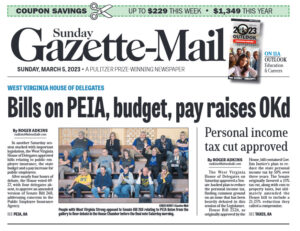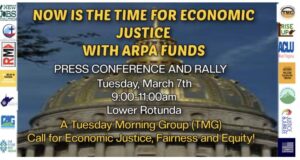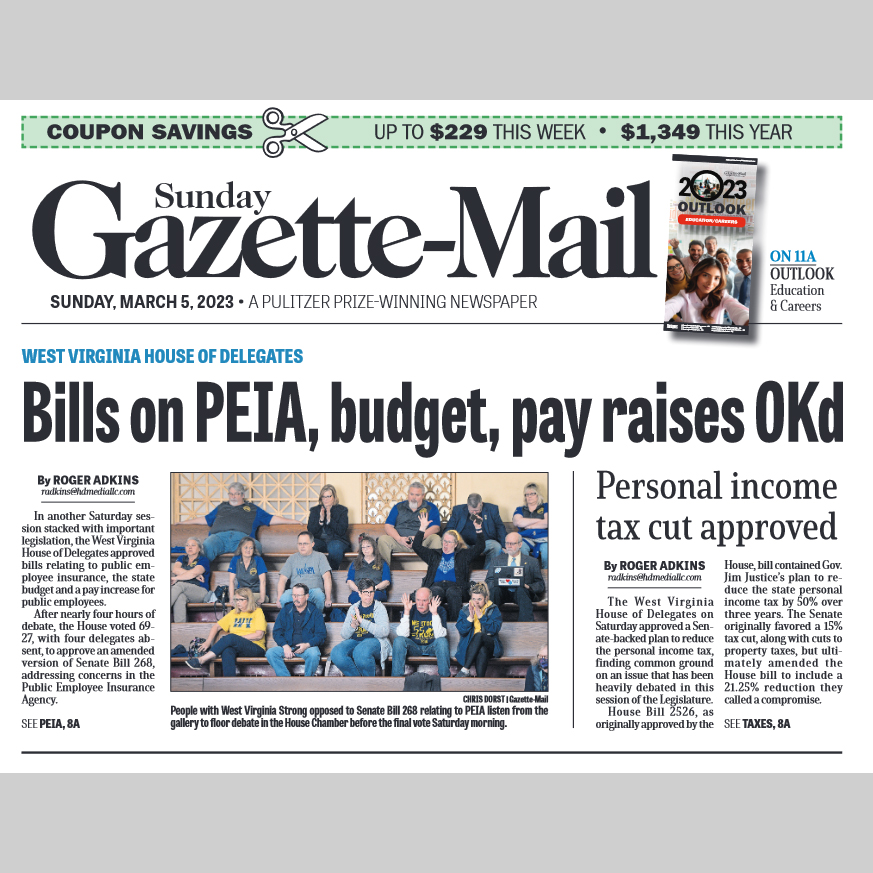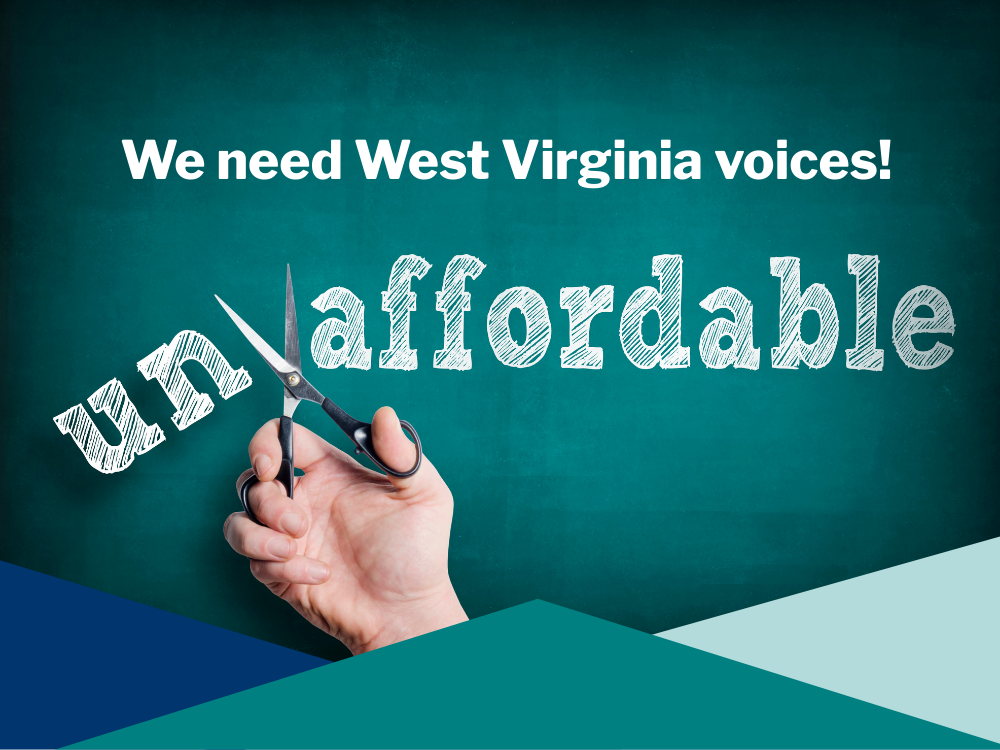- Like
- Digg
- Del
- Tumblr
- VKontakte
- Buffer
- Love This
- Odnoklassniki
- Meneame
- Blogger
- Amazon
- Yahoo Mail
- Gmail
- AOL
- Newsvine
- HackerNews
- Evernote
- MySpace
- Mail.ru
- Viadeo
- Line
- Comments
- Yummly
- SMS
- Viber
- Telegram
- Subscribe
- Skype
- Facebook Messenger
- Kakao
- LiveJournal
- Yammer
- Edgar
- Fintel
- Mix
- Instapaper
- Copy Link
Wednesday, March 1st, was the 50th day of the 60 day legislature and the last day for bills to ‘crossover’ or be passed out of their originating body. It culls lots of really terrible bills, and also many of the best we were hoping to move. (Mountain State Spotlight has a great write up on what made it past Crossover Day, and some of what didn’t.) The House passed 264 of their bills and the Senate sent 235 over to the House. Bills that never moved across the aisle are now in the recycling bin, that is unless they get amended into another bill that’s still moving. Now the race continues until midnight this Saturday, when all activity of the 2023 legislative session grinds to a halt. Can’t come soon enough!
 During this last week of the session one of the major issues that’s left is how we’re going to fund the operations of the state for the 2024 budget year, which actually starts July 1st, 2023, and how much state revenue we’ll be giving away to the rich vs. how much we’ll be investing in our workers and deferred maintenance of our infrastructure. The three legs of this tax and budget stool are the tax cut bill (HB 2526), the PEIA bill (SB 268), and the budget bill. In a day-long Saturday floor session, the House passed all three after hours of heated debate, and legislative action is now complete on all but the budget. By the time you read this the Governor will likely have signed what he’s calling the biggest tax cut in WV history. History will record the effects of this reckless disregard for fiscal sanity. Monday the Senate passed the other two measures. 60 Days has another good review of Saturday’s House action.
During this last week of the session one of the major issues that’s left is how we’re going to fund the operations of the state for the 2024 budget year, which actually starts July 1st, 2023, and how much state revenue we’ll be giving away to the rich vs. how much we’ll be investing in our workers and deferred maintenance of our infrastructure. The three legs of this tax and budget stool are the tax cut bill (HB 2526), the PEIA bill (SB 268), and the budget bill. In a day-long Saturday floor session, the House passed all three after hours of heated debate, and legislative action is now complete on all but the budget. By the time you read this the Governor will likely have signed what he’s calling the biggest tax cut in WV history. History will record the effects of this reckless disregard for fiscal sanity. Monday the Senate passed the other two measures. 60 Days has another good review of Saturday’s House action.
Rev. Jeff Allen, Executive Director of the WV Council of Churches always reminds us that our state’s budget is a moral document, which lays out our collective values. In this year of revenue ‘surplus’ (half artificially created through the Governor’s low-ball revenue estimates) and overwhelming needs to repair and fully staff our schools, prisons, libraries, and so much that has been neglected for years, what will our budget say about West Virginia’s values?
Now we’ll be giving hundreds of millions in income and property tax revenue away to the rich, giving teachers and state workers a raise (and then taking most or all of it back through PEIA premium increases) and leaving far too many of our critical needs unaddressed. This is no way to run a state government. This is what happens when one party has a super majority, can ‘suspend the rules,’ and ram through just about anything they can agree upon.
In spite of all this, there are a few good policies that we’re hoping to get across the finish line. These include insulin copay caps, addressing PFAS chemicals in our drinking water, an Affordable Medicaid Buy-In option, adding more oil & gas inspectors in WV DEP, and protecting public lands from ATVs. More elsewhere in this newsletter on these flowers among the weeds…
 Finally, calls for American Rescue Plan Act funds to be actually used for what they were sent to WV for has mostly fallen on deaf ears, but advocates have not given up speaking truth to power on this issue. This morning, the Tuesday Morning Group, a coalition of Charleston faith leaders, and allies held a press conference and rally at the Capitol (video here) to once more make the case for investing in our struggling communities, in addition to the hundreds of millions going to lure big corporations to set up shop in West Virginia. Using accounting shell games to direct these millions to big businesses is unconscionable and just plain wrong.
Finally, calls for American Rescue Plan Act funds to be actually used for what they were sent to WV for has mostly fallen on deaf ears, but advocates have not given up speaking truth to power on this issue. This morning, the Tuesday Morning Group, a coalition of Charleston faith leaders, and allies held a press conference and rally at the Capitol (video here) to once more make the case for investing in our struggling communities, in addition to the hundreds of millions going to lure big corporations to set up shop in West Virginia. Using accounting shell games to direct these millions to big businesses is unconscionable and just plain wrong.
At the public hearing we requested last month on the Governor’s plans for the remaining ARPA funds, there was abundant, excellent testimony on this. Rev. Matthew Watts commented:
“The 300,000 poor people in this state are the people that we have. We cannot continue to ignore them as irrelevant and inconsequential. This state cannot move forward unless we invest in those people.”



